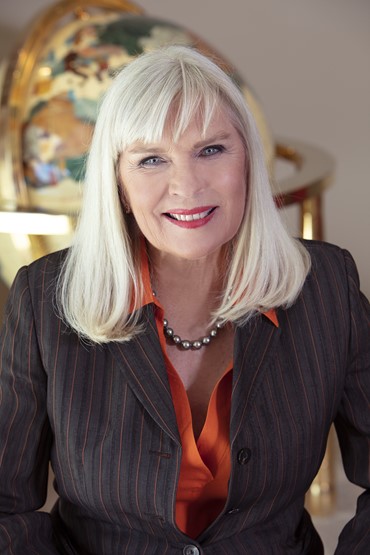
Title: White Storks of Mercy: Book One-Formation
Author: Joni Anderson van Berkel
Publisher: jponipress
ISBN: 978-0-578-95780-7
Pages: 345
Genre: Epic Fantasy, Time Travel, Magical Realism, Mythology
Reviewed by: Margie Przybylski


Author Interview with Joni Anderson van Berkel
by Hollywood Book Reviews
HBR: What inspired you to start writing?
JVB: I experienced a close brush with death during an emergency surgery to treat the complications of an autoimmune disorder. A lengthy convalescence provided the opportunity to cultivate both humility and gratitude. I also rediscovered my passion for writing.
HBR: How long have you been writing?
JVB: I have been writing for nearly twenty years. The first draft of White Storks of Mercy Trilogy required over ten years to complete. I launched ‘jponipress’ to self-publish Book One – Formation.
HBR: Describe your writing space.
JVB: I live in Scottsdale, Arizona for half of the year. I work at my desk that looks out at a stunning view of Pinnacle Peak in the majestic Sonoran desert. I also reside in Switzerland, where my writing space overlooks the beautiful Lake of Zurich. My husband’s library includes thousands of books that provide ample motivation at both of our residences.
HBR: Does one of the main characters hold a special place in your heart? If so, why?
JVB: I have engaged for years in an ongoing mental conversation with my protagonist, the Great and Honorable Zendala. We share the ideals of honoring diversity and seeking peace. Along with my mother and grandmother, this ancient woman is my role model.
HBR: What was the inspiration for the story?
JVB: I have always been fascinated with mythology, the faerie realm, and mysterious environments. I set out to create a timeless tale with a heartfelt message, situated in a world where fantasy and reality coexist. My aim is to arouse the imaginations of my readers in believable ways. After living in central Europe for many years—and visiting ancient sites in Egypt—I knew that my story should be located in both places.
HBR: What is the key theme and/or message in the book?
JVB: The White Storks of Mercy inspire people of diverse ethnicities and religions to live together in harmony. This requires a recalibration of humanity’s moral compass in order to relinquish its destructive ways of violence and prejudice.
HBR: What do you hope your readers take away from this book?
JVB: I want the readers to realize that a Merciful One exists in all of us. We need to rediscover our respect for each other and for nature. If we band together, it is not too late for us to create a world where peace prevails.
HBR: What is the significance of the title?
JVB: Storks symbolize a bright future on the horizon—something to hope for and work toward. Mercy is a concept that involves forgiveness, compassion, and the alleviation of suffering. These create a powerful combination.
HBR: Tell us about the process for coming up with the cover.
JVB: As an artist, I love bright colors. I sought to portray the miraculous and awesome transformation from human Merciful Ones to mystical White Storks of Mercy. The penetrating Siamese cat eyes on the back cover illustrate that the antagonist is always watching her nemeses—the crusaders for peace.
HBR: What is the future for the characters? Will there be a sequel?
JVB: The White Storks of Mercy will face dangerous times and masterful manipulation by supernatural forces in the upcoming books. However, as long as the chosen ones wear their talismans, they live through eternity. My editor and I are busy polishing up Reunion, the second book of the trilogy.
HBR: Do you write listening to music? If so, what music inspired or accompanied this current book?
JVB: I generally prefer a quiet environment in which to think and write. However, if White Storks of Mercy had a theme song, it would be Beethoven’s Symphony No. 9, Ode to Joy. My favorite line from its lyrics, written by Friedrich Schiller, is “Alle Menchen wirden Brüder.” It translates, “All people will become brothers.”